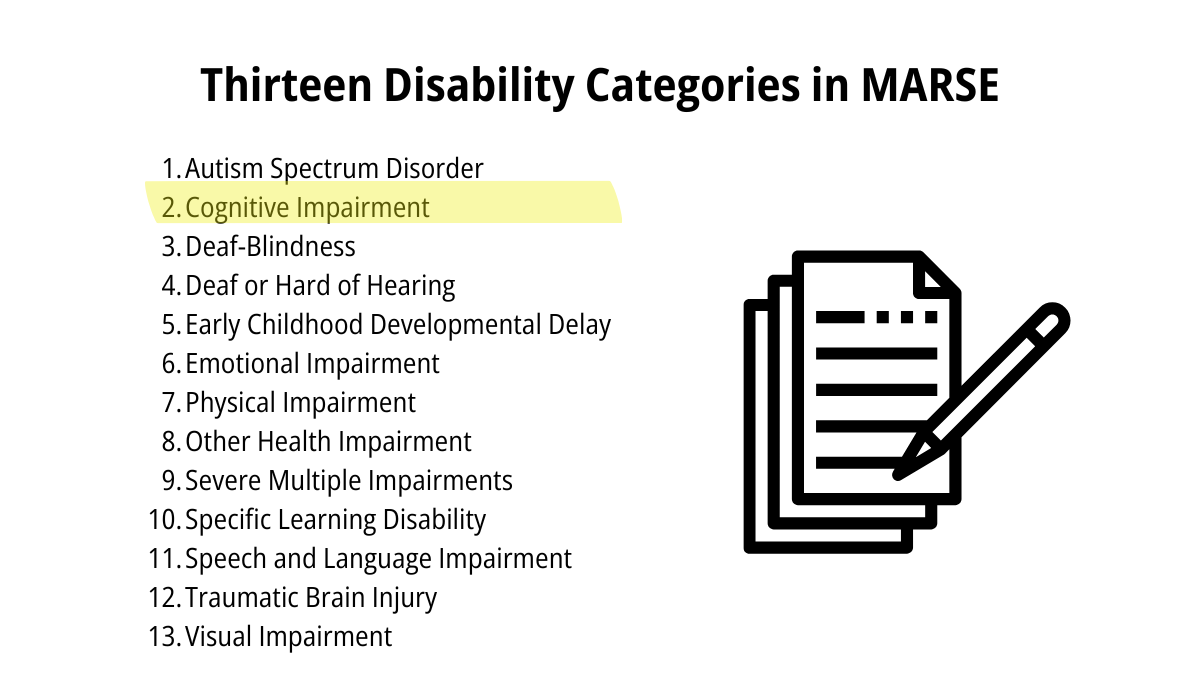Eligibility for Special Education under designation of Cognitive Impairment
The Michigan Administrative Rules for Special Education (MARSE) define eligibility for special education services within thirteen categories of disability.
- MARSE 340.1705 Cognitive Impairment


